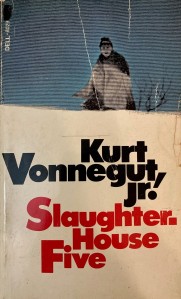UPDATE: The House Education Committee did not vote on Rep. Cash’s amendment. Instead, it voted 12-0 to advance the original, unamended, SB 380 — dealing with how graduation rates are calculated — to the full House. Language similar to the amendment was approved by the Senate in March as SB 12, but it wasn’t given a committee hearing in the House. Because the language was approved by one chamber, it’s feasible, but probably not likely, that it could still be added to a different bill in a conferenc committee.
Hat’s off to Indiana’s librarians. They turned out in force last week when legislators considered making it easier to ban books and prosecute people who provide material that’s “harmful to minors.” And they pushed back when lawmakers suggested they didn’t know what they were saying.

But it may not matter. The legislation is on the agenda again today for a meeting of the House Education Committee, and Republicans on the panel seem determined to pass it into law.
The measure is a proposed amendment to Senate Bill 380, which initially dealt with high school graduation rates. Rep. Becky Cash, R-Zionsville, wants to replace that language with new rules to govern obscene and harmful materials and their distribution to anyone under 18.
The amendment would require school libraries to compile lists of all their books and materials, post them online, and print them out for parents or others who request hard copies. They would also have to create and publicize a procedure for members of the public to seek to remove books from libraries. That seems heavy-handed and unnecessary, but school libraries can probably manage it. Most have computerized inventories that could be used to satisfy the law.
The other part of the amendment is what scares librarians. Indiana law says that disseminating to minors any matter that is “harmful to minors” is a felony. Currently, a person who’s charged can argue in their defense that the material has an educational purpose. It’s also a defense if the material is disseminated by an employee of a school, museum or public library in the scope of their employment.
But Cash’s amendment would remove the educational purpose defense. And it would eliminate the “scope of employment” defense for school and public libraries and their employees. It would retain the scope of employment defense for university, college and museum libraries.
In other words, it would make it easier for a politically ambitious prosecutor to convict a school or public librarian on a felony charge. No wonder librarians are alarmed.
No one is arguing that libraries should expose children to obscene materials, but criminalizing material that is “harmful to minors” is a slippery slope. State law says material is harmful if it depicts nudity or sexual conduct, appeals to a “prurient interest in sex” for minors, offends community standards and, “considered as a whole,” lacks serious literary, artistic, political or scientific value. Most of those criteria are subjective.
The committee debate last week was disturbing in several respects. For one thing, Cash, the amendment’s author, claimed it didn’t eliminate the “scope of employment” defense for librarians. Clearly, it does. (See amendment 21, page 3, lines 22-28).
For another, legislators acted as if they had never heard of Kurt Vonnegut, certainly the most important writer Indiana produced in the second half of the 20th century.
This came out when Julia Whitehead, founder and CEO of the Kurt Vonnegut Museum and Library, located two blocks from the Statehouse, testified against the amendment. Rep. Martin Carbaugh, R-Fort Wayne, brushed off Whitehead’s Vonnegut references and kept asking if she was from a school or a public library. Rep. Zach Payne, R-Charlestown, mocked her concern that government book bans can put booksellers and librarians at risk. Yet, as Whitehead pointed out, the Indy Reads bookstore experienced a bomb threat recently over its drag story hours; and, in what may have been a related incident, someone threw a rock through the Vonnegut Library window.
Lawmakers also played down Whitehead’s fears that Vonnegut’s classic “Slaughterhouse-Five” would be “one of the first to go” if conservative activists, emboldened by state legislation, campaign to remove books from libraries. In fact, legislators are working from a playbook pushed by Moms for Liberty and similar right-wing groups, which sniff out salacious passages in books and put them in front of legislators. A Florida Moms for Liberty chapter recently released a list of books that it considers inappropriate for school libraries. On the list: Vonnegut’s anti-war satire “Slaughterhouse-Five.”
Those organized campaigns explain why, according to an American Library Association report, attempts to censor library books more than doubled in 2022. And these aren’t cases of individuals reading a book and finding it objectionable. In 40% of incidents, more than 100 books were targeted.
The House Education Committee meets at 8:30 a.m. today, and SB 380 is second on its agenda. There will be no more testimony; just committee discussion and a vote on whether to approve the amendment.

Pingback: Steve Hinnefeld: Indiana Librarians Defeat Effort to Make Them Criminals | Diane Ravitch's blog
Pingback: Issues abound in session’s final week | School Matters